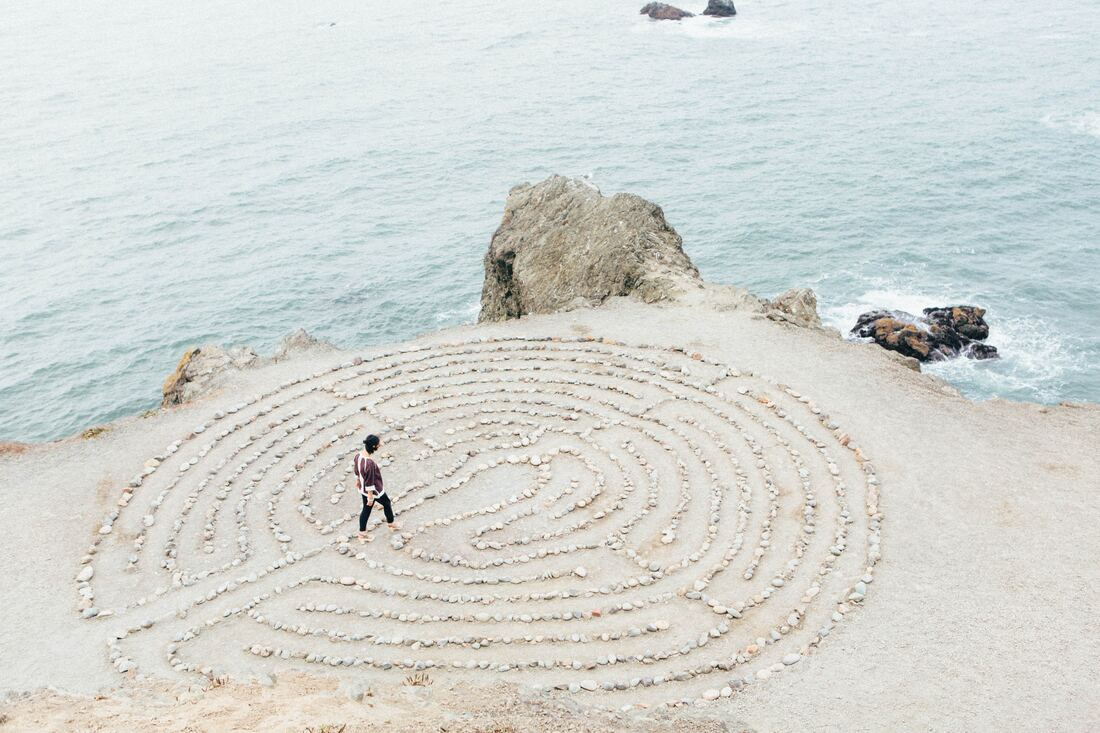Photo by Dawid Zawiła on UnsplashI embarked on this project to explore the role of bodywork as a potential adjunct to existing methods used to integrate psychedelic experiences. The project involved working with volunteers who are using psychedelics for therapeutic reasons, to see how bodywork - and in my case I use a bodywork modality called Zero Balancing - could help them integrate their experiences. The three volunteers that came forward each wrote about their experiences and these can be read here (one, two and three).
I've been reflecting on this topic over the past few months, in part because I knew I wanted to continue it, or at the very least wrap it up with a summary. Quite where this blog post will sit in the scheme of this project remains to be seen. Regardless, it's a good opportunity to take stock.
2 Comments
This is the last in a series of guest blog posts about psychedelic integration. See here for an introduction to this project, here for the first case study and here for the second case study. It's hard to know where to start in summarising my experience of psychedelic-assisted therapy and Zero Balancing as, in James' words, 'the healing potential of psychedelics is so incredibly broad'. The reality of the healing experience, for me, was also incredibly broad. So much to consider! I was both honoured and excited to have James invite me as a volunteer to help him with his exploration into how Zero Balancing might benefit the integration of psychedelic, or any plant, entheogenic or psychotropic healing experience. It felt, to me, like together we were doing something for the greater good. What follows is a guest blog post from psychedelic integration volunteer #2. See here for an introduction to this project, and here for the first case study. A third case study will be published in the coming week. Background I'd recently taken psychedelic drugs (psilocybin mushrooms) as a therapeutic aid and was looking for a way to integrate the experience into my everyday life. This opportunity to work with James was recommended by a friend. Prior to this, for the last 20 years, I've been a very traditional businessman working in sectors where "feelings" are consciously suppressed. Much of the terminology of Zero Balancing was meaningless to me, for instance "bodywork" is the panelling on my car. So please forgive any naivety in the language of this report, I hope it's readable to all. My interest in all of this is my need for self-development. I want to improve my life, change harmful behaviours and patterns that I see playing out repeatedly in my relationships, and ultimately to move towards self-realisation. What follows is a guest blog post from the psychedelic integration volunteer mentioned in the previous blog post. As James said in his post, ingestion of psychedelics under supervision in a safe setting greatly increases the likelihood that the psychedelic experience is one of therapeutic benefit. I completely agree, however the safe setting that I chose could be regarded by many as highly unsafe. The middle of the Peruvian jungle, in an off grid camp, next to a tributary of the Amazon river, a day's canoe ride from any medical help. It's tough to find somewhere to do it in the UK. I'm an adventurer so it wasn't too much of an issue for me. I was highly motivated by the desire to rid myself of the heavy darkness I was carrying inside me, I didn't want it but I couldn't seem to free myself from it. I'd made progress through counseling, meditation, yoga, NVC (non violent communication), spiritual teachers on youtube and various other weird and wonderful retreats I'd attended. But something was still there and I couldn't get to it. They name this plant medicine "The Mother" in the Amazon, and they say it calls you. When I learned about Ayahuasca, it called me.
Image by Barbara A Lane from Pixabay
There is an emerging paradigm shift taking hold in the treatment of mental illness. It goes by the name of Psychedelic Assisted Psychotherapy, and essentially involves the ingestion of psychedelics under supervision in a safe setting. Doing so greatly increases the likelihood that the psychedelic experience is one of therapeutic benefit. Such benefits include the treatment of treatment-resistant depression, fear of death in terminal cancer patients and nicotine addiction. The results from research done so far is very compelling - some cases of which show that three doses can have lasting and sustained positive outcomes, such as an 80% success rate in the case of treating nicotine addiction. And, indeed, that one dose can make a beneficial and lasting impact on those suffering from depression. Such success rates are totally unheard of in the existing paradigm. Similarly impressive results are seen in the treatment of post traumatic stress disorder (PTSD). With two new research centres now established - one in Imperial College London and the other at John Hopkins University - many more studies are planned. |
�
Archives
February 2022
Categories
All
|
|
Zero Balancing in Edinburgh with James Salomons
Wednesdays 10am - 6pm Thursdays 10am - 9pm Fridays 10am - 6pm Saturdays 10am - 1pm EH1 Therapies 4b Randolph Place Edinburgh EH3 7TQ [email protected] 07938 411 517 |
|
© COPYRIGHT 2018-2023. ALL RIGHTS RESERVED.
|






 RSS Feed
RSS Feed